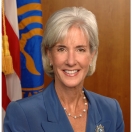
Ed. note: This is part of a series of blog posts written by Administration officials in recognition of the 50th anniversary of the historic March on Washington. Read more here.
When Dr. Martin Luther King, Jr. spoke at the March on Washington, he described a “fierce urgency of now.” He reminded a divided nation that we need one another, and that we are stronger when we march forward, together. “We cannot walk alone,” he said. “And as we walk, we must make the pledge that we shall march ahead. We cannot turn back.”
A half century later, Dr. King’s words have renewed meaning.
For every little boy or girl in America whose health lies in the balance, there is an urgency of now.
For every one of our neighbors who lives day-after-day in fear because they do not have insurance, there is an urgency of now.
For every mom or dad who has faced bankruptcy because of a mounting medical bill, there is an urgency of now.
Without the opportunity to live a healthy life, there is no opportunity to live the American dream or participate fully in our communities. Without the freedom which comes from having access to quality health care, there is no freedom to reach our full potential in the workforce or watch our kids or grandkids grow up. Without the security of health insurance, there is no economic security for middle-class families, and so many other families working their way into the middle class.
The time for division and debate has passed. Now is the time to march forward.
“Of all forms of injustice,” Dr. King told the Medical Committee for Human Rights, “injustice in health care is the most shocking and inhumane.”
In 1965, the same year the Voting Rights Act became the law of the land, we came together as a nation to create Medicare and Medicaid.
My father was serving in Congress at the time. He was very involved in the Civil Rights movement, and in fact he was good friends with Reverend Fred Shuttlesworth, the co-founder of the Southern Christian Leadership Conference (and one of the legends of the era.)
My dad strongly supported the Voting Rights Act, and he helped write the Medicare and Medicaid laws. He saw all these struggles as connected to the broader goal of a more perfect union.
Today, this legacy continues. The Affordable Care Act is the most powerful law for reducing health disparities since Medicare and Medicaid were created in 1965.
It provides the 85% of our neighbors who currently have insurance with new rights and protections under the law.
For the 15% of our neighbors who do not have coverage (or who buy coverage on their own and would like better options), a new Health Insurance Marketplace will open for enrollment starting October 1, with benefits starting January 2014 (for more information on your new options visit www.HealthCare.gov).
So talk to your family, friends, and neighbors. Partner up with trusted resources in your communities, like community health centers and local libraries. Be a champion for coverage with other civic and business leaders who are stepping up in your communities.
Because of the Affordable Care Act, we are one step closer to fulfilling the promise, freedom, and opportunity for millions of Americans to live a healthy, secure life.
Millions of Americans—our families and neighbors—can’t afford for us to turn back. They are counting on us to march ahead. And we will.
Kathleen Sebelius is the Secretary of Health and Human Services
- 50 Years Later, Our March Goes On, by Attorney General Eric Holder
- Becoming a More Perfect Union, by Cecilia Munoz, Director of the Domestic Policy Council


